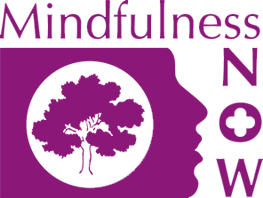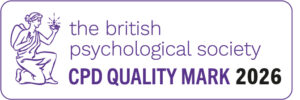Emotional intelligence (EI) can be thought of as the ability to identify, assess, and control the emotions of oneself, of others, and of groups. Having a high level of emotional intelligence can be far more useful in helping us to have a happy, healthy and stable life, than any amount of traditional, cognitive – problem solving intelligence (IQ).
In 1983, Howard Gardner’s ‘Frames of Mind: The Theory of Multiple Intelligences’, introduced the idea of multiple intelligences which included both interpersonal intelligence (the capacity to understand the intentions, motivations and desires of other people) and intrapersonal intelligence (the capacity to understand oneself, to appreciate one’s feelings, fears and motivations). In Gardner’s view, traditional types of intelligence, such as IQ, fail to fully explain cognitive ability.
Although the concept of EI was introduced in the 1920s, it was popularised by Daniel Goleman’s 1995, best-selling self-help book ‘Emotional Intelligence’. Here, Goleman focuses on EI as a wide array of competencies and skills (mixed model) that contribute significantly to our ability to ‘succeed’ in life, to be self-motivated, emotionally resilient and to relate successfully to others.
A couple of years ago I worked with a client who, from a very early age was academically brilliant, a national chess champion at 10 years old, gained a scholarship to a top public school, gained a science 1st at Cambridge and went on to become a highly successful and respected academic. Her issues in consulting me were that she was unable to form close personal relationships, loneliness and social phobia which meant she was finding it very difficult to function other than in her university laboratory. She really seemed to have no life at all outside her work and was starting to become very negative.
I started a process of helping my client to explore in an open and honest way, her negative emotional states and to begin a self-healing process that I call ‘natural healing’. This involves examining what it is that you really want in life and formulating a plan to move towards it. At the same time finding ways to admit and to express to yourself the truths and the hurt of the present reality. Natural therapy also involves accepting and forgiving yourself and others. Its tools include gaining and changing perspective, laughter and relaxation both in the form of self-hypnosis and mindfulness meditation.
Successful therapy is always a collaboration between therapist and client and learning the skills of emotional resilience is no exception. I like to think of therapy as a process of teaching the client, rather than doing something to the client. Clients learn, over the course of a few sessions, how to let go of unwanted feelings, interrupt unwanted emotional patterns and learn ways of cultivating nourishing emotions such as curiosity, excitement, flexibility, confidence and determination, as well as gratitude and appreciation.
Scientific research has demonstrated that people engaged in mindfulness practice over a period of 6 to 8 weeks boosted their resilience ‘scores’ by more than 38%. The results were very clearly demonstrated and participants stated that they felt happier, with more energy and less stress than before the programme. They also reported that they started to identify challenges as opportunities rather than threats and had a higher level of optimism.
In his trainings Anthony Robbins describes ways of ‘mastering your emotions’ which I’ve found very beneficial in teaching emotional resilience. I ask my clients to focus on a number of key steps:
- Identify just what the emotion is, and what it’s telling them that they need to act on.
- Clarify just what message the emotion contains and whether they need to change their perception of it, or their behaviours in respect of it.
- Recall a previous experience of this emotion which they managed to successfully overcome. Recall the success state and anchor it.
- Experiment with imagining different ways of dealing with this emotion until they find one that works well – then take action!
There will be times when clients are locked into patterns of emotional trauma where it appears that there is no way out. In that situation nowhere feels safe and nothing feels any good. Life loses its sparkle and often people experiencing Post Traumatic Stress Disorder (PTSD) have frequent upsetting flashbacks of traumatic memories which just seem to come ‘out of the blue’.
The most successful ways of helping clients with emotional trauma seem to come from the category of approaches that can best be described as mind/body interventions which employ a kinaesthetic , sensory input. These are described by Dr Ronald Ruden in his book ‘When The Past is Always Present’ as ‘psychosensory therapy’, and it includes his ground breaking approach ‘Havening ™’. These kinds of approaches can be described as truly holistic and I’ve found that EFT and EMDR can be particularly helpful. The most recent development in this field is Kevin Laye’s Psy Tap, which seems to be achieving remarkable results.
EI and Resilience Building is part of the syllabus of the UK College, accredited mindfulness teacher training course – run on a regular basis. www.mindfulnessnow.org.uk






